
The economy of Hong Kong is a highly developed free-market economy. It is characterised by low taxation, almost free port trade and a well-established international financial market. Its currency, called the Hong Kong dollar, is legally issued by three major international commercial banks, and is pegged to the US dollar. Interest rates are determined by the individual banks in Hong Kong to ensure that they are market driven. There is no officially recognised central banking system, although the Hong Kong Monetary Authority functions as a financial regulatory authority.
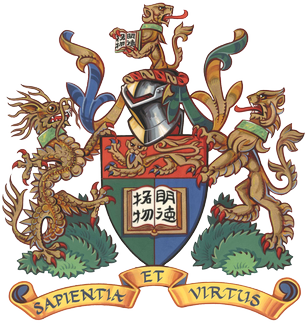
The University of Hong Kong is a public research university in Pok Fu Lam, Hong Kong. Founded in 1887 as the Hong Kong College of Medicine for Chinese, it is the oldest tertiary institution in Hong Kong. Today, HKU has ten academic faculties and English is the main medium of instruction and assessment. The University of Hong Kong was also the first team in the world to successfully isolate the coronavirus SARS-CoV, the causative agent of SARS.
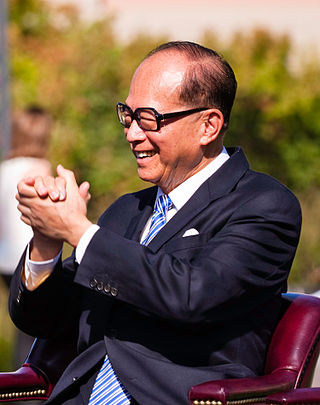
Sir Li Ka-shing is a Hong Kong billionaire business magnate, investor, and philanthropist. He is the senior advisor for CK Hutchison Holdings and CK Asset Holdings, after he retired from the Chairman of the Board in May 2018; through it, he is a port investor, developer, and operator of the largest health and beauty retailer in Asia and Europe. As of July 2023, Li is the 33rd richest person in the world, with an estimated net wealth of US$37.7 billion.

Richard Li Tzar-kai is a Hong Kong businessman and philanthropist. The founder and chairman of the private investment group Pacific Century Group (PCG), Li started his career in the 1990s with the founding of STAR TV, a pan-Asian television network. After founding PCG in 1993, he went on to establish PCCW and HKT Trust.

Lee Shau-kee GBM is a Hong Kong business magnate, investor, and philanthropist. He is a real estate tycoon and majority owner of Henderson Land Development, a property conglomerate with interests in property, hotels, restaurants and internet services. In 2019, aged 91, Lee stepped down as chairman and managing director of the company, in favour of two of his sons, Peter and Martin Lee. He retains a role as an executive director.
The Community Chest of Hong Kong is an independent, nonprofit organization established on 8 November 1968 in Hong Kong. The Community Chest serves as an umbrella organization to provide grants to a wide range of community projects.

Li & Fung Limited is a Hong Kong-based supply chain management company. Founded in 1906, the company experienced near-exponential growth since it first went public in 1973 by being the "go-to source" for apparel, toys, and other consumer goods manufacturing for western brands and retailers, reaching its peak market capitalization in 2011. For decades, Li & Fung provided product design, raw material sourcing, and manufacturing services to some of the biggest retailers in North America and Europe, but a global economic slowdown affected these retailers, leading to lower profits for the then-publicly traded company. Between 2011 and 2020, the company lost 95% of its market value, with its turnover almost halving. The decline has been attributed to the Internet and the rise of e-commerce and the resulting subsequent closing of specialty and department stores, specifically the rise of Alibaba, which connected Chinese manufacturers with buyers directly, but also Amazon, which encroached into the business of brick & mortar resellers that Li & Fung served.
The Sixth Ministerial Conference of the World Trade Organization, also known as the WTO Hong Kong Ministerial Conference and abbreviated as MC6, was held at the Hong Kong Convention and Exhibition Centre, Wan Chai, Hong Kong from 13 to 18 December 2005. Representatives from 148 countries were expected to attend the event, as well as over 10,000 protesters led by the Hong Kong People’s Alliance on WTO and made up of largely South Korean farmers. Wan Chai Sports Ground and Wan Chai Cargo Handling Basin in Wan Chai North have been designated as protest zones. Victoria Park served as the starting point for the rallies. Police wielded sticks, used gas grenades and shot rubber bullets at some of the protesters. They arrested 910 people, 14 were charged, but none were convicted.
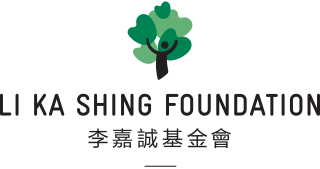
The Li Ka Shing Foundation is a Hong Kong-based charitable organization founded in 1980 by Hong Kong entrepreneur Li Ka-shing.
Refugees in Hong Kong have formed historic waves arriving in the city due to wars in the region and Hong Kong's historical role as a trading and transit entrepôt. More recently those seeking asylum or protection based on torture claims are a fast growing part of the city's population, increasing since 2004 due to changes in the legal system for considering asylum and torture claims mandated by local courts.

Asia Art Archive (AAA) is a nonprofit organisation based in Hong Kong which focuses on documenting the recent history of contemporary art in Asia within an international context. AAA incorporates material that members of local art communities find relevant to the field, and provides educational and public programming. AAA is one of the most comprehensive publicly accessible collections of research materials in the field. In activating its collections, AAA initiates public, educational, and residency programmes. AAA also offers research grants and publishes articles on IDEAS Journal.
The Hong Kong Federation of Youth Groups is a non-profit organization in Hong Kong, committed to develop youth services. Founded in 1960, the Federation has since been involved in providing activities and facilities for the physical, social, educational, cultural development of Hong Kong's youth.
Public interest law in Hong Kong is an emerging field. The chief vehicle for pursuing public interest claims is judicial review. This is the process by which decisions of the government are challenged in the courts. There has been a surge in judicial review cases since 2000. Environmental issues and minority rights are among the most litigated areas.
Claire Hsu is the co-founder and the former executive director of Asia Art Archive (AAA), an independent non-profit organisation founded in 2000 to document and make accessible the multiple recent histories of art in Asia. In September 2021, Hsu stepped down as executive director of AAA after twenty-one years. She acts as the co-chair of AAA's board of directors.
Poman Lo is the Vice Chairman of Century City International Holdings Limited and Vice Chairman and Managing Director of Regal Hotels Group. Century City Group comprises a total of five listed entities in Hong Kong, including Century City International Holdings Limited, Paliburg Holdings Limited, Regal Hotels International Holdings Limited, Regal Real Estate Investment Trust, and Cosmopolitan International Holdings Limited. Founded in 1979, Regal Hotels is one of the largest hotel operators headquartered in Hong Kong operating over 8,000 rooms and 60 restaurants and bars across Hong Kong, mainland China, the United Kingdom, Spain and Portugal. Poman is the Founding Managing Partner of AlphaGreen Capital, an Asia-focused sustainable technology fund.
Handicraft markets in Hong Kong provide a platform for artists and craftspeople to show or sell their original artistic works. They are growing in range and popularity, but remain restricted by the availability of venues.
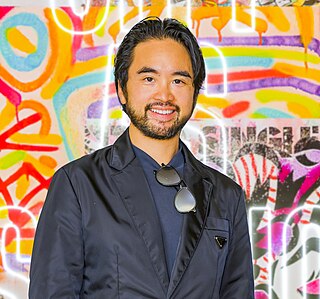
Adrian Cheng Chi-kong is a Hong Kong entrepreneur and business executive. He is the CEO and executive vice-chairman of the Hong Kong-listed New World Development, the heir and executive director of jewelry company Chow Tai Fook, and the owner of Rosewood Hong Kong Hotel. He is also the founder of K11, which has a portfolio of commercial, cultural and residential projects. He is the son of property developer Henry Cheng and grandson of Cheng Yu-tung.
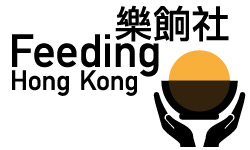
Feeding Hong Kong is a food bank in Hong Kong. It is an accredited member of The Global Food Banking Network.
Launched in 2014, Justice Centre Hong Kong is an independent, non-profit human rights organisation that focuses on the protection of refugees and asylum seekers in Hong Kong. Hong Kong has long been a hub of migration and refuge due to wars in the region and Hong Kong’s historical role as a trading and transit entrepôt. There were estimated to be 14,000 refugees in the territory in 2017, and these refugees are in need of extensive legal assistance as the 0.8 substantiation rate is extremely low compared to rates of 25-62% per cent in other developed jurisdictions. Before early 2014 the organisation was known as the Hong Kong Refugee Advice Centre (HKRAC), which in 2007 had grown out of the Refugee Advice Unit from another local organisation working with refugees, Christian Action. And spun off by human rights lawyers Jennifer Stone and Raquel Amador, who were the first Directors. In 2012 Aleta Miller became Executive Director, helping HKRAC win the Clifford Chance Foundation Access to Justice Award in 2012, and relaunching the organisation as Justice Centre Hong Kong in 2014. From 2015 the Executive Director was Piya Muqit, who was previously head of policy and advocacy at UNICEF UK. In November 2020 Melanie McLaren was appointed Executive Director.
Art in the Camps was a three-year project between 1988 and 1991 that provided creative workshops to Vietnamese refugees in Hong Kong detention camps. Organized by Evelyna Liang Yee Woo of Garden Streams — Hong Kong Fellowship of Christian Artists and funded by the United Nations, Art in the Camps provided workshops on painting, drawing, dancing, singing and poetry-writing to Vietnamese refugees, primarily those at the Whitehead Detention Camp in Sha Tin, New Territories. By 1991, the project amassed between 600 and 800 pieces of artworks and writings by Vietnamese refugees in its collection.










